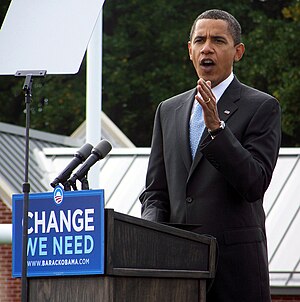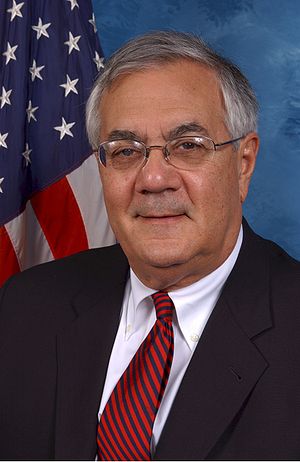
Image by Getty Images via Daylife
The government's response to the financial meltdown has made it more likely the United States will face a deeper crisis in the future, an independent watchdog at the Treasury Department warned.
The problems that led to the last crisis have not yet been addressed, and in some cases have grown worse, says Neil Barofsky, the special inspector general for the trouble asset relief program, or TARP. The quarterly report to Congress was released Sunday.
"Even if TARP saved our financial system from driving off a cliff back in 2008, absent meaningful reform, we are still driving on the same winding mountain road, but this time in a faster car," Barofsky wrote.
Since Congress passed $700 billion financial bailout, the remaining institutions considered "too big to fail" have grown larger and failed to restrain the lavish pay for their executives, Barofsky wrote. He said the banks still have an incentive to take on risk because they know the government will save them rather than bring down the financial system.
Barofsky also said his office is investigating 77 cases of possible criminal and civil fraud, including crimes of tax evasion, insider trading, mortgage lending and payment collection, false statements and public corruption.
TARP Watchdog Neil Barofsky: Government Bailout Has Increased Risk Of Economic Crisis
![Reblog this post [with Zemanta]](http://img.zemanta.com/reblog_a.png?x-id=58b91625-fa06-4ac5-a89c-8c85c979c13c)


![Reblog this post [with Zemanta]](http://img.zemanta.com/reblog_a.png?x-id=b4946808-aa54-4786-a35f-8e1e5afd5ad4)




![Reblog this post [with Zemanta]](http://img.zemanta.com/reblog_a.png?x-id=70d639f8-0fb6-4ae5-b5b9-041eb5ae9a27)

![Reblog this post [with Zemanta]](http://img.zemanta.com/reblog_a.png?x-id=68a35646-6dc8-4fd2-90e7-8e3f8caf918d)


![Reblog this post [with Zemanta]](http://img.zemanta.com/reblog_a.png?x-id=40bcdcad-d150-41d2-9e6c-eb59d5bfff6d)




![Reblog this post [with Zemanta]](http://img.zemanta.com/reblog_a.png?x-id=50679dd5-a751-4021-ba36-9172b2e6e21a)




![Reblog this post [with Zemanta]](http://img.zemanta.com/reblog_a.png?x-id=26465067-b20f-4d64-a714-d65edab3f850)


![Reblog this post [with Zemanta]](http://img.zemanta.com/reblog_a.png?x-id=f76580a3-d7d4-4eb1-bee4-7bc860df034f)

![Reblog this post [with Zemanta]](http://img.zemanta.com/reblog_a.png?x-id=3be7a1cd-83fe-49fd-be94-702dcf3e0e1d)
![Reblog this post [with Zemanta]](http://img.zemanta.com/reblog_a.png?x-id=459f9e1d-8ca2-4097-af3f-3ce1841324c6)

![Reblog this post [with Zemanta]](http://img.zemanta.com/reblog_a.png?x-id=adca6473-e54f-4578-8db2-2548ff0f3c6e)